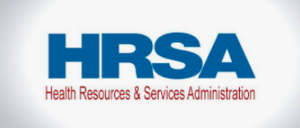- Weathering the Storm Together: Community Resiliency Hubs Hold the Promise of Local Self-Sufficiency and Supportive Mutual Aid
- Virginia Tech Researchers Bring Rural Families into the Nation's Largest Study of Early Brain and Child Development
- Expanding Access to Cancer Care for Rural Veterans
- VA: Veterans Rural Health Advisory Committee, Notice of Meeting
- Scaling Rural Wellness with Clever Collaboration
- Stroudwater Associates Enhances Rural Healthcare Dashboard with New Data to Support State Rural Transformation Grant Applications
- Harvest Season Is Here: Busy Times Call for Increased Focus on Safety and Health
- HHS Dispatches More Than 70 Public Health Service Officers to Strengthen Care in Tribal Communities
- Wisconsin Rural Hospitals Team up to Form Network
- CMS Launches Landmark $50 Billion Rural Health Transformation Program
- American Heart Association Provides Blood Pressure Kits at Southeast Arkansas Regional Libraries to Support Rural Health
- Broadening Access to Minimally Invasive Surgery Could Narrow Rural-Urban Health Gaps
- Instead of Selling, Some Rural Hospitals Band Together To Survive
- Help Line Gives Pediatricians Crucial Mental Health Information to Help Kids, Families
- Rural Health: A Strategic Opportunity for Governors
Legislation Will Put Pennsylvania in Interstate Licensing Compacts
 Legislation addressing worker shortages in healthcare and facilitating Pennsylvania’s entry into interstate compacts has been sent to Gov. Josh Shapiro to be signed into law. Sponsored by Rep. Frank Burns, D-Cambria, HB 2200 enables interstate licensing compacts to become operational. The legislation requires applicants in healthcare professions to submit fingerprints as part of their criminal history records check and lays out the process that Pennsylvania State Police and state licensing boards must follow in considering them. The change in law allows licensees to practice in other participating states with just one license. Without the fingerprinting process in place, previous efforts to implement the compacts were unsuccessful.
Legislation addressing worker shortages in healthcare and facilitating Pennsylvania’s entry into interstate compacts has been sent to Gov. Josh Shapiro to be signed into law. Sponsored by Rep. Frank Burns, D-Cambria, HB 2200 enables interstate licensing compacts to become operational. The legislation requires applicants in healthcare professions to submit fingerprints as part of their criminal history records check and lays out the process that Pennsylvania State Police and state licensing boards must follow in considering them. The change in law allows licensees to practice in other participating states with just one license. Without the fingerprinting process in place, previous efforts to implement the compacts were unsuccessful.
ACO PC Released a Flex Model Office Hour
– Tuesday, July 16 at 2:00 pm Eastern. In this hour-long session, the Centers for Medicare and Medicaid Innovation will provide an overview of the new ACO Primary Care Flex Model (ACO PC Flex Model), which will focus on primary care delivery in the Medicare Shared Savings Program (SSP). CMS has released a Request for Applications and the application portal is open until August 1 for new or renewing ACOs who submitted an application to SSP by June 17, 2024. CMS plans to announce applicants selected to participate in October 2024. This model seeks to increase accountable care relationships for people with Medicare, especially those in rural and underserved communities.
HHS Finalizes Section 1557 Nondiscrimination Rule – Impacts for RHCs
 – Monday, July 15 at 2:00 pm Eastern. The National Association of Rural Health Clinics (NARHC) will host the free, FORHP-supported webinar, with information on the Department of Health and Human Services (HHS) Office of Civil Rights and the Centers for Medicare & Medicaid Services final rule under Section 1557 of the Affordable Care Act Nondiscrimination in Health Programs and Activities and the RHC impacts, including:
– Monday, July 15 at 2:00 pm Eastern. The National Association of Rural Health Clinics (NARHC) will host the free, FORHP-supported webinar, with information on the Department of Health and Human Services (HHS) Office of Civil Rights and the Centers for Medicare & Medicaid Services final rule under Section 1557 of the Affordable Care Act Nondiscrimination in Health Programs and Activities and the RHC impacts, including:
- Requirement to post a notice of nondiscrimination.
- Requirements to post notice of availability of translation and auxiliary aid services in top 15 foreign languages.
- Requirement to establish and train employees on policies and procedures related to nondiscrimination.
Additional time for Q&A will be provided. Advanced registration is required.
CMS Proposed Rule on Anomalous DME Spending and MSSP Financial Calculations
 – Comment by July 29. This week, the Centers for Medicare & Medicaid Services (CMS) issued a proposed rule for mitigating the impact of significant, anomalous, and highly suspect (SAHS) billing activity on the Medicare Shared Savings Program financial calculations in calendar year 2023. This proposed rule is part of a larger strategy to address significant, anomalous, and highly suspect (SAHS) within ACO reconciliation, and additional information will be forthcoming in the Physician Fee Schedule. Due to a recent, observed increase in Durable Medical Equipment, Prosthetics, Orthotics & Supplies (DMEPOS) billing to Medicare for selected intermittent urinary catheter supplies in CY 2023, CMS proposes to exclude use of these codes from any supplier in 2023 from ACO expenditure and revenue calculations.
– Comment by July 29. This week, the Centers for Medicare & Medicaid Services (CMS) issued a proposed rule for mitigating the impact of significant, anomalous, and highly suspect (SAHS) billing activity on the Medicare Shared Savings Program financial calculations in calendar year 2023. This proposed rule is part of a larger strategy to address significant, anomalous, and highly suspect (SAHS) within ACO reconciliation, and additional information will be forthcoming in the Physician Fee Schedule. Due to a recent, observed increase in Durable Medical Equipment, Prosthetics, Orthotics & Supplies (DMEPOS) billing to Medicare for selected intermittent urinary catheter supplies in CY 2023, CMS proposes to exclude use of these codes from any supplier in 2023 from ACO expenditure and revenue calculations.
New: Rural SUD Info Center Released
This exciting new clearinghouse highlights the work of three different Rural Centers of Excellence on Substance Use Disorders (SUD), all of which are funded by FORHP’s Rural Communities Opioid Response Program (RCORP). Visitors to the website will find current information and technical assistance opportunities on SUD through a rural lens.
Final Recommendation Statement: Interventions for High Body Mass Index in Children and Adolescents
The U.S. Preventive Services Task Force released a final recommendation statement on interventions for high body mass index in children and adolescents. The Task Force recommends that healthcare professionals provide or refer children and teens to behavioral interventions to help them manage their weight and stay healthy. To view the recommendation, the evidence on which it is based, and a summary for clinicians, please go here.
Increased Risk of Dengue Virus Infections in the United States
 The Centers for Disease Control and Prevention (CDC) is issuing this Health Alert Network (HAN) Health Advisory to notify healthcare providers, public health authorities and the public of an increased risk of dengue virus (DENV) infections in the United States in 2024. In the setting of increased global and domestic incidence of dengue, healthcare providers should take steps including:
The Centers for Disease Control and Prevention (CDC) is issuing this Health Alert Network (HAN) Health Advisory to notify healthcare providers, public health authorities and the public of an increased risk of dengue virus (DENV) infections in the United States in 2024. In the setting of increased global and domestic incidence of dengue, healthcare providers should take steps including:
· Maintain a high suspicion for dengue among patients with fever and recent travel (within 14 days before illness onset) to areas with frequent or continuous dengue transmission.
· Consider locally acquired dengue among patients who have signs and symptoms highly compatible with dengue in areas with competent mosquito vectors.
· Order appropriate FDA-approved dengue tests and do not delay treatment waiting for test results to confirm dengue.
· Know the warning signs for progression to severe dengue.
· Recognize the critical phase of dengue. The critical phase begins when fever starts to decline and lasts for 24–48 hours. During this phase, some patients require close monitoring and may deteriorate within hours without appropriate intravenous (IV) fluid management.
· Hospitalize patients with severe dengue or any warning sign of progression to severe dengue and follow CDC/WHO protocols for IV fluid management.
Change Healthcare Breach Notifications Are Going Out
On Thursday, June 20, Change Healthcare started sending out breach notifications to affected customers. In addition, they have updated the Change Healthcare website with a HIPAA Substitute Notice. It is important to note that the Department of Health and Human Services said on May 31 that Change can be the notifying entity, however, per the National Association of Community Health Centers (NACHC), it’s on the covered entity (health center) to reach out to Change to delegate the tasks of providing the required HIPAA breach notifications on their behalf. Change plans to start sending actual letters to the affected individuals themselves in late July, though the company noted it may not have addresses for everyone. Exposed data could include contact information, health insurance details, medical information like diagnoses and test results, billing and payment information and personal details like Social Security numbers or ID numbers
HRSA Substance Use Disorder Treatment and Recovery Loan Repayment Program
 The Substance Use Disorder Treatment and Recovery (STAR) Loan Repayment Program is accepting applications through June 27, 7:30 pm. Eligible substance use disorder (SUD) treatment clinicians and community health workers can apply to the Substance Use Disorder Treatment and Recovery (STAR) Loan Repayment Program. HRSA can provide up to $250,000 in educational loan repayment.
The Substance Use Disorder Treatment and Recovery (STAR) Loan Repayment Program is accepting applications through June 27, 7:30 pm. Eligible substance use disorder (SUD) treatment clinicians and community health workers can apply to the Substance Use Disorder Treatment and Recovery (STAR) Loan Repayment Program. HRSA can provide up to $250,000 in educational loan repayment.
Have You Seen the Trends in Physician Compensation?
 Doximity, a digital platform and community for U.S. medical professionals, recently conducted a physician compensation study, surveying nearly 150,000 physicians over a five-year period to gain insights into physician compensation trends and critical challenges facing the physician workforce. Did you know the average pay for doctors increased nearly 6% in 2023? If you want to see how your health center’s compensation compares to the national average, the Doximity report is available for you to view for free.
Doximity, a digital platform and community for U.S. medical professionals, recently conducted a physician compensation study, surveying nearly 150,000 physicians over a five-year period to gain insights into physician compensation trends and critical challenges facing the physician workforce. Did you know the average pay for doctors increased nearly 6% in 2023? If you want to see how your health center’s compensation compares to the national average, the Doximity report is available for you to view for free.
